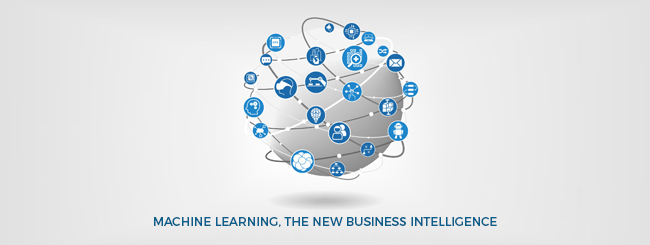
It’s 2018, there’s no doubt about the fact that the world is aware of the wonders one can of do with Artificial Intelligence and Machine Learning. We are living in exciting and innovative times with futuristic technology literally at our fingertips.
How machine learning can help ones business is the question that is on every entrepreneur’s mind. We’ve got to the stage where we take intelligent machines for granted. We trust them to carry out complex tasks requiring extreme precision, speed, and accuracy – from pacemakers to auto-pilots. But while autonomous cars get all the headlines, it’s actually many other industries that may feel the greatest impact of the new tech. So, it’s very intriguing to learn how machine learning improve businesses intelligence.
Put simply, machine learning is about understanding data and statistics. It’s a technical process where computer algorithms find patterns in data, then perform functions – like improving the core functionality of existing software and analytic, uncovering previously inaccessible insights hidden in large data sets unstructured data formats, and taking over tasks like image recognition, text analysis, and repetitive knowledge work. The potential use cases are seemingly endless, from supply chain and risk detection to logistics and technical support to behavioural analysis and customer support.
Businesses can also use machine learning to up-sell the right product, to the right customer, at the right time. In 2018, marketers will continue to rely on machine learning to understand open rates when it comes to email– so you know exactly when to send your next campaign.
Retail companies are also tracking what ads or images you’re most likely to stop scrolling on, in order to target you with specific content. Machine learning is applied to reduce the risk of credit fraud in small businesses. Machines learn from historical datasets that contain fraudulent transactions and can identify patterns that represent a typical fraudulent transaction.
The value that machine learning can deliver will be dependent on the degree to which these systems can deal with structured and unstructured data and its quality. Similarly, Chatbots can also help achieve a faster customer service resolution, as well as provide quick histories of each customer for impeccable customer service.
Consequently, machines will not eliminate human intervention in decision making. Machines will simply change the nature and timing of our intervention. A machine self-learns so that the algorithms can predict accurately. However, final decisions have to be taken by living, breathing, empathetic entities.





